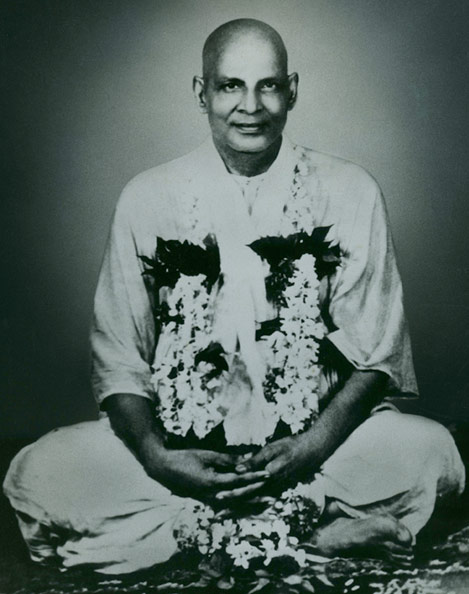The actuality of things is to be known by a first-hand personal experience through the eye of clear understanding and not through the report of learned men. The beauty of the moon is enjoyed through one's own eyes; can one appreciate it through the description by others?
Sankara reinforces the idea in the above three examples with yet another verse, hammering, as it were, the last nail on the coffin of our doubts.
The beauty, the brilliance, the soft glory, the queenly dignity, the serene consolation, the message of love and leisure, of peace and quietude, which the moon sheds as it glides across the springtime skies cannot, indeed, be captured in words but they are experiences to be enjoyed subjectively only.
The vision of its majesty is to be perceived by one's own eyes and experienced in satisfying suggestive silence. A blind man cannot enjoy the love messages of a moonlit night.
When the Self rises in the dark bosom of our ignorance and glides across the horizon of our experiences, that experience cannot be described fully by us to another, even though he may have experienced it himself. Each must experience it for himself, in himself. This analogy of moonrise is indeed the most poetic and by far the most appropriate example to indicate the soft silvery light of knowledge that illumines, with its sublime peace and perfection, the dark atmosphere in the bosom of the ignorant.
vasthu svarupam, vasthu means reality. The ultimate truth is called vasthu. So in Samskrit the word vasthu has got two meanings; one meaning is any object in the world is called vasthu.
But in the context of vedanta; the word vasthu has a specific meaning and this is paramarthika satyam; the absolute reality. And the corresponding opposite avasthu means mithya or unreal.
It is derived from the word “vas”, to exist.
vasathi; asthi, sarvadha asthi ithi vasthu; that which exists eternally. That which is unnegatable is called vasthu; in short satyam. So vasthu svarupam means the nature of reality
svenaiva vedyam has to be known by oneself. The nature of reality has to be known by oneself through what means?
Sputa bodhacaksusa; through the eyes of clear understanding; through the eyes of clear understanding; bodhah means jnanam, sputa bodhaḥ means clear jnanam, caksusa means eye; jnana caksusa vedyam.
Many people think that there is a physical eye in the forehead and they try to open it; some people call it ajna chakram; and even ajna chakram is symbolic; there is no such thing called a physical or subtle eye; if at all you call it subtle eye it should be understood as antha karanam.
Swami Sivananda writes on Grace (of Guru) and Self Effort.
“
Realization cannot come to you as a miracle done by your Guru. Lord Buddha, Lord Jesus, Rama Tirtha have all done Sadhana. Lord Krishna asks Arjuna to develop Vairagya (dispassion) and Abhyasa (practice).
He did not say to him, “I will give you Mukti(liberation) now”. Therefore, abandon the wrong notion that your Guru will give you Samadhi and Mukti. Strive, purify, meditate, and realize.
Guru-kripa-grace of a Guru-is very necessary. That does not mean that the disciple should sit idle. He must do rigid Purushartha, spiritual practices. The whole work must be done by the student.
The Guru and the Shastras can show you the path and remove your doubts. Anubhava (direct experience) of the Aparoksha kind or direct intuitive knowledge is left for your own experience. A hungry man will have to eat for himself. He who has a severe itching will have to scratch for himself.
No doubt, the Guru’s blessing can do everything. But how can one have his blessings? By pleasing the Guru. A Guru can be pleased with his disciple only if the latter carries out his spiritual instructions implicitly.
Carefully follow, therefore the instructions of the Guru. Act up to his instructions. Then only will you deserve his blessings, and then alone his blessings can do everything.”
Love


No comments:
Post a Comment